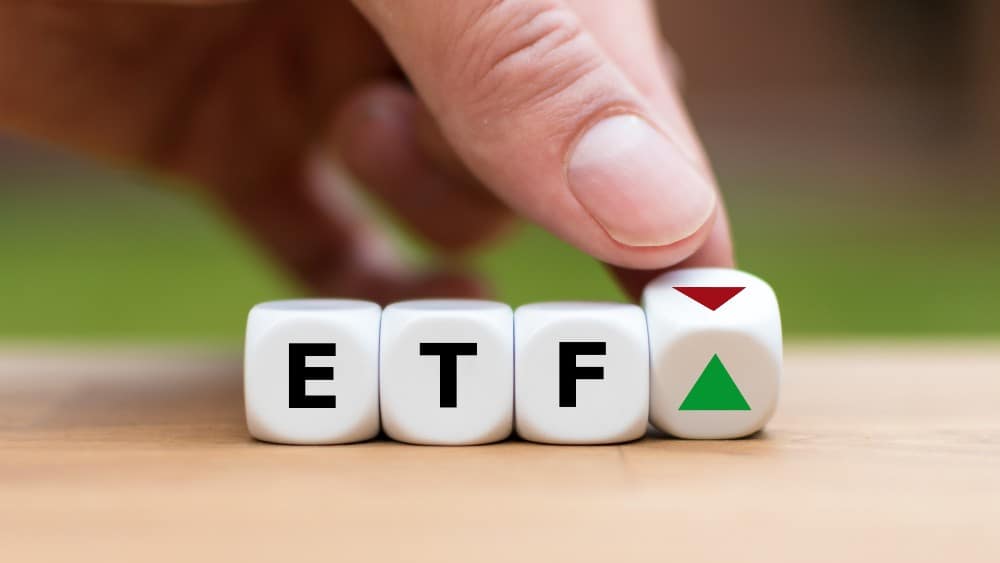Some people prefer to keep their savings in cash, because they are afraid of the negative repercussions of investing, primarily stock investing. But that’s not just underutilizing their savings; it’s actually depleting it at a steady rate due to inflation.
Even if you know nothing about investing, there are a few broad-market ETFs that you can park your savings in and enjoy moderate growth and dividends. These ETFs are relatively safe and inherently diversified, so they are only susceptible to market crashes and are able to survive sector-specific falls with minimal loss.
Invest in the TSX
The easiest place to start would be the Canadian stock market, and you can invest in the market (almost as a whole) via Horizons S&P/TSX Capped Composite Index ETF (TSX:HXCN). Since it tracks the broad market index, you get exposure to the market as a whole; you get exposure to a lot of holdings at once. And, like the actual market, a few major players occupy a large portion of the ETF by weight (the top five securities almost make up a quarter of the ETF).
It’s a relatively new fund and only started trading on the TSX in Feb. 2020, right before the market crash. So don’t set the bar based on its current performance history, which has seen it rise about 28% in two years. However, it follows the underlying index quite faithfully; it will essentially perform just as well as the market. It’s also very low-cost, and the management expense ratio (fees) of 0.05% will take two decades just to shave off 1% from your capital.
Investing in the U.S. market
The market across the border is relatively more alluring due to its faster pace, and one way to gain exposure to it is to follow the S&P 500 or the top 500 companies in the United States. One ETF for the job is Vanguard S&P 500 Index ETF (TSX:VFV). It comes with a management expense ratio of 0.08%, which is minimal, especially considering its return potential.
The ETF has returned almost 89% in the last five years, which indicates that it’s perfectly capable of doubling your capital well within a decade. Growing your savings at a rate of more than 10% a year (annualized) is significantly better than leaving cash at the mercy of depletion through inflation.
A dividend ETF
Canada is home to many great dividend stocks, and if you want to use your savings to start a healthy passive-income stream, BMO Canadian Dividend ETF (TSX:ZDV) is a great choice. The fund has a medium-risk rating and a monthly expense ratio of 0.39%, which may seem higher, but it also offers two-prong return potential.
The first is its dividend, which it distributes monthly and currently offers a healthy yield of 3.74% (especially for an ETF). It also offers decent capital-appreciation potential. If you had invested $10,000 in it a decade ago, you would have grown your capital in this fund to about $20,000, and even though most of this growth is post-pandemic, it’s an advantage you can’t disregard.
Foolish takeaway
Low-cost and diversified ETFs are some of the easiest ways to start investing. Their inherent benefits and the fact that they don’t require a lot of investment knowledge have made ETF investing significantly more mainstream than stock investing, especially in the last decade or so.
The post 3 Beginner ETFs That Are Perfect for New Investors appeared first on The Motley Fool Canada.
Should You Invest $1,000 In Vanguard Sp 500 Index Etf?
Before you consider Vanguard Sp 500 Index Etf, we think you’ll want to hear this.
Our S&P/TSX market doubling Stock Advisor Canada team just released their top 10 starter stocks for 2022 that we believe could be a springboard for any portfolio.
Want to see if Vanguard Sp 500 Index Etf made our list? Get started with Stock Advisor Canada today to receive all 10 of our starter stocks, a fully stocked treasure trove of industry reports, two brand-new stock recommendations every month, and much more.
See the 10 Stocks
* Returns as of 1/18/22
More reading
- S&P 500 ETFs: Should Canadians Buy Hedged or Unhedged?
- 3 Vanguard ETFs to Buy in 2022
- 3 ETFs You Can Keep Till Your 90s
- Market Got You Scared? Check Out These 4 Ultra-Safe ETFs
- 2 Canadian Dividend ETFs to Buy Right Now
Fool contributor Adam Othman has no position in any of the stocks mentioned. The Motley Fool has no position in any of the stocks mentioned.




 By:
By:





